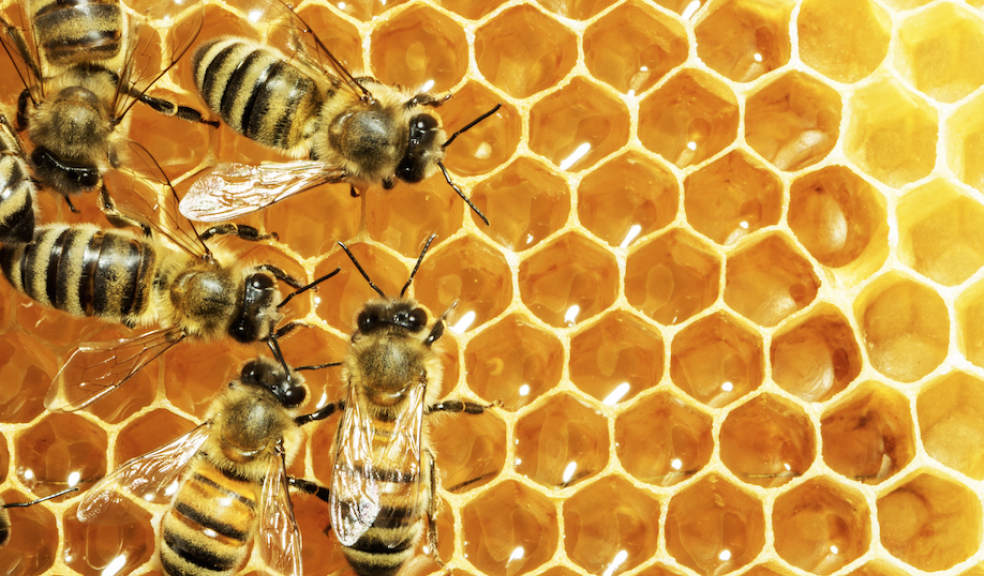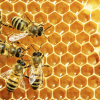
Bumper honey crop from SW bees
Beekeepers across the South West of England have reported an average yield of 30lbs of honey per colony this year according to the findings of the British Beekeepers Association¹s annual Honey Survey, released today (26 November, 2014).
The survey revealed a substantial 36 per cent increase on the 22lbs per colony reported by South West of England beekeepers in 2013, and is a far cry from the 7lbs per colony nadir of 2012.
The reported yield across the country is 32lbs per colony, a 28 per cent increase on the 25lbs per colony reported in 2013.
Conducted by BBKA amongst 2,000 beekeepers across the country, the annual Honey Survey explores the current year¹s honey yield and the factors affecting honey bee colonies and honey production.
Commenting on the increased yield for this year, BBKA Director of Public Affairs, Tim Lovett, said:
While this increase is great news for beekeepers and honey bees, the historic average is 40lbs plus per hive so there is still some way to go if we are to return to our most productive. But beekeepers in the East of England are doing especially well
To help counter the devastating impact of pests and diseases on honey bee colonies in recent years, the BBKA has funded research exploring honey bee welfare; but great emphasis has also been given to equipping all beekeepers with the husbandry skills needed to maintain healthy and productive honey bee colonies, and the 2014 Honey Survey clearly reflects this.
Of beekeepers across the country who reported an increased honey yield, around two fifths, 41 per cent, cited Œbetter beekeeping¹ as a contributory factor. Further, 58 per cent of all beekeepers reported that they had attended some form of training event with their local beekeeping association over the past year.
Considerable funding to support beekeeper training comes from the BBKA's Burt's Bees sponsored Adopt a Beehive scheme. This enables members of the public to become armchair beekeepers and follow the progress across the year of a local apiary at a distance in the comfort of their homes. To date over 8,000 people have joined the scheme suggesting a determined willingness to support honey bees even by those who can¹t actually keep bees themselves.
Other factors cited in the survey as contributory factors to the improved honey yields included the hot weather, mentioned by 60 per cent of beekeepers; the early Spring, 58 per cent; and swarming, 19 per cent.
And when asked to comment on any unusual behaviour from their bees this year, 35 per cent cited early swarming and 15 per cent late swarming (July or later).
Swarm management is central to good beekeeping and the ongoing welfare of honey bees. It can also impact greatly on honey yields, as Tim Lovett explains:
Swarming is a natural phenomenon whereby honey bee colonies reproduce by dividing to create new colonies. Early swarming leaves a weakened parent colony; while late swarming can sometime leave new colonies with insufficient time to stock up for winter.
A well-trained beekeeper will be able to spot the early signs of swarming and act swiftly to reduce potential losses, and build up the colonies after swarming he said.
Of the beekeepers that took part in this year¹s survey, a third, 33 per cent, manage one or two hives, while 28 per cent managed three or four. Over a quarter, 27 per cent, manage five to ten hives.
The average beekeeper has been beekeeping for around nine years but this year the number of new beekeepers has appeared to fall off slightly just 22 per cent having been beekeepers for one to two years, compared to 26 per cent last year and 41 and 44 per cent in 2010 and 2011 respectively.
Beekeeping has enjoyed a resurgence in popularity in recent years and it is crucial that we do not lose the momentum. Honey bees are essential pollinators and vital contributors to food production, said Tim Lovett. The better weather has helped a great deal but it is also the improving husbandry skills of beekeepers, as they gain experience, that has made a big difference. These very precious creatures still need all the help we can give.
Anyone interested in becoming a beekeeper can source information from the BBKA website,bbka.org.uk, or visit adoptabeehive.co.uk to become an armchair beekeeper.














